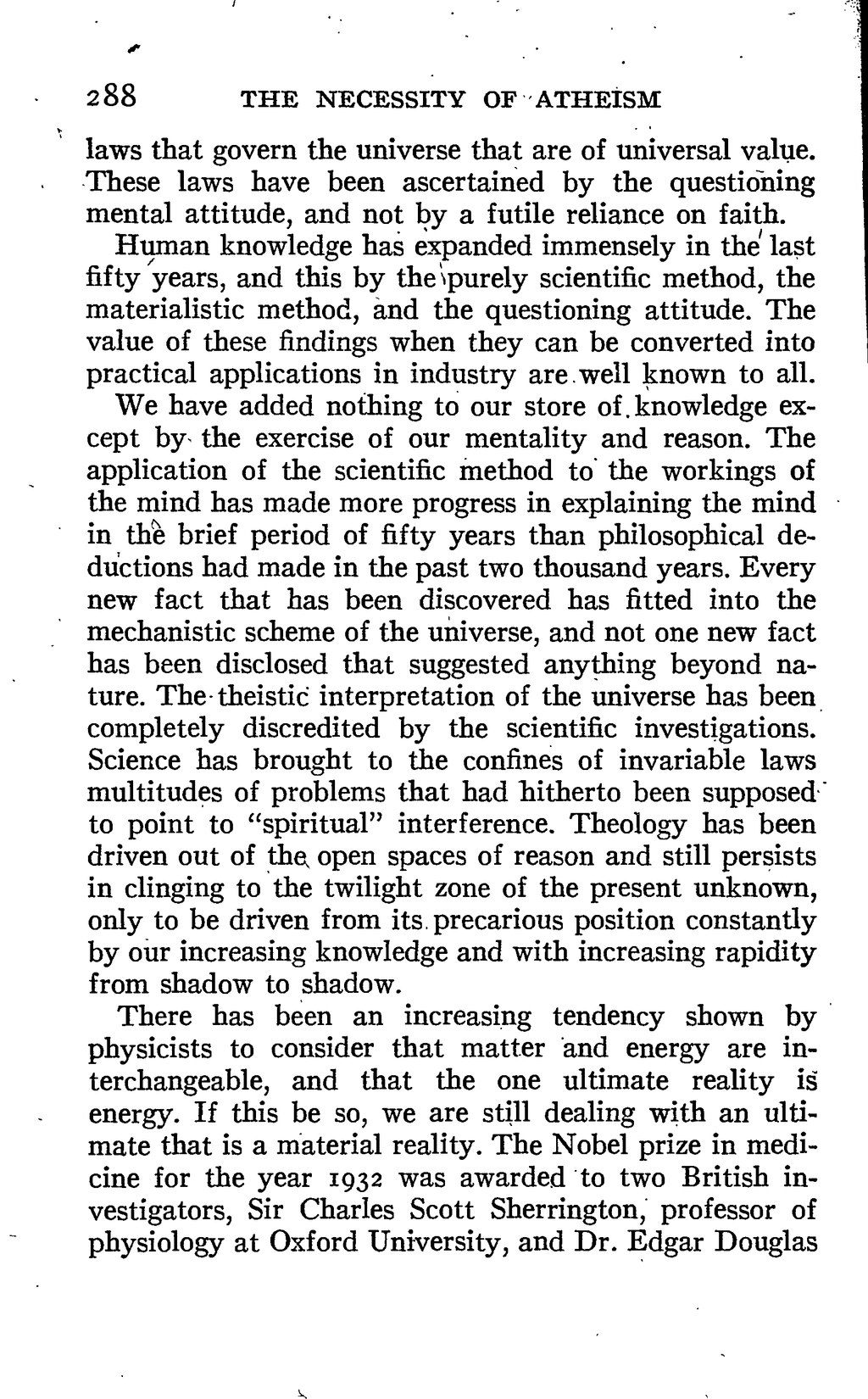laws that govern the universe that are of universal value. These laws have been ascertained by the questioning mental attitude, and not by a futile reliance on faith.
Human knowledge has expanded immensely in the last fifty years, and this by the purely scientific method, the materialistic method, and the questioning attitude. The value of these findings when they can be converted into practical applications in industry are. well known to all.
We have added nothing to our store of. knowledge except by the exercise of our mentality and reason. The application of the scientific method to the workings of the mind has made more progress in explaining the mind in the brief period of fifty years than philosophical deductions had made in the past two thousand years. Every new fact that has been discovered has fitted into the mechanistic scheme of the universe, and not one new fact has been disclosed that suggested anything beyond nature. The theistic interpretation of the universe has been completely discredited by the scientific investigations. Science has brought to the confines of invariable laws multitudes of problems that had hitherto been supposed to point to "spiritual" interference. Theology has been driven out of the, open spaces of reason and still persists in clinging to the twilight zone of the present unknown, only to be driven from its precarious position constantly by our increasing knowledge and with increasing rapidity from shadow to shadow.
There has been an increasing tendency shown by physicists to consider that matter and energy are interchangeable, and that the one ultimate reality is energy. If this be so, we are still dealing with an ultimate that is a material reality. The Nobel prize in medicine for the year 1932 was awarded to two British investigators, Sir Charles Scott Sherrington, professor of physiology at Oxford University, and Dr. Edgar Douglas
